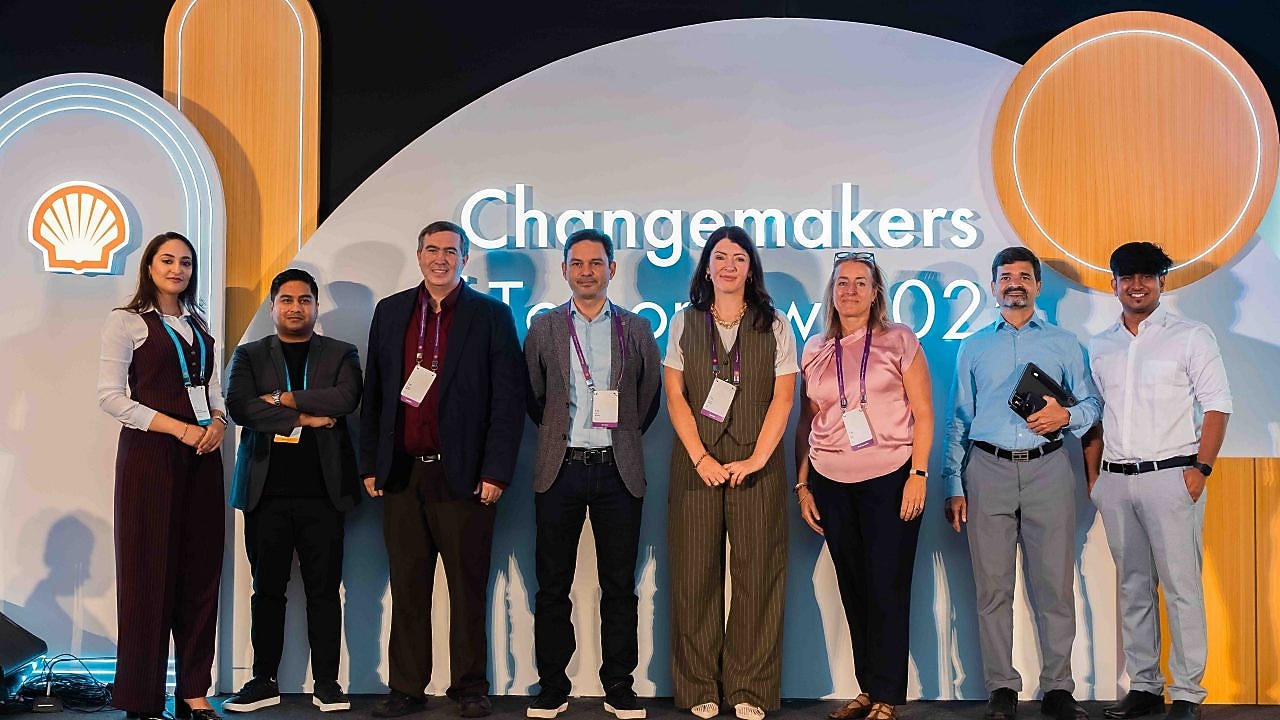
Shell.ai Hackathon for Sustainable and Affordable Energy 2025
Shell.ai Hackathon for Sustainable and Affordable Energy brings together brilliant minds passionate about digital solutions and AI, to tackle real energy challenges and help build a lower-carbon world where everyone can access and afford energy.
Click on the link above to register your interest to participate in the Shell.ai Hackathon 2025. When you click on “Sign Up Now” you’ll be asked to provide your details which we will use to send you the information on how to join the Hackathon on July 4, 2025.
Fuel Blend Properties Prediction Challenge
In the sixth edition of the Shell.ai Hackathon for Sustainable and Affordable Energy, you will immerse yourselves in the critical field of fuel blending. In the previous five editions, we addressed some of the digital challenges around the energy transition: windfarm layout optimisation (2020), irradiance forecasting for solar power generation (2021), optimal placement of electric vehicle (EV) charging stations (2022), supply chain optimisation for biorefineries (2023), and fleet decarbonisation (2024). This year, we focus on blend properties estimation for sustainable fuel.
In this hackathon, your challenge is to develop models capable of predicting the final properties of complex fuel blends based on their constituent components and proportions. The endgame is to engineer powerful predictive tools that can guide the industry in formulating the next generation of sustainable fuels, potentially accelerating the transition to a net-zero future, without compromising on model excellence.
Disclaimer: Please note that for the purposes of this challenge, the term “sustainable fuels” encompasses fuels derived from renewable or low-carbon sources; such as bio-based feedstocks, synthetic fuels generated using renewable electricity (e-fuels), and fuels produced from waste materials. These alternatives are intended to significantly reduce lifecycle greenhouse gas emissions when compared to conventional fossil fuels.
Cautionary note: https://www.shell.com/investors/disclaimer-and-cautionary-note.html
Eligibility and Prizes

General Edition
Eligibility:
Open to all individuals and teams of up to 4 members (except Shell employees and contractors)
Shortlist and winners:
- Level 1 - The participants are invited to develop mathematical models to optimise fleet decarbonisation strategies. 20 Participants with top scores in the private leaderboard (regardless of the edition) will be shortlisted for Level 2.
- Level 2 - Shortlisted teams will develop a prototype, based on their solution. The top three finalist will be announced based on the judging criteria.
- In Level 3, the finalists will pitch their solutions live and the winners will be selected.
Prizes:
- 1st prize: 2,500 USD
- 2nd prize: 2,200 USD
- 3rd prize: 2,000 USD

Special University Edition
Eligibility:
Open to anyone currently studying at or associated with any university/institute/college (students, PhD, Postdoc, Technical Assistant, Research Assistant, faculty, etc.)
Shortlist and winners:
- Level 1 - The participants are invited to develop mathematical models to optimise fleet decarbonisation strategies. 20 Participants with top scores in the private leaderboard (regardless of the edition) will be shortlisted for Level 2.
- In Level 2 - shortlisted teams will develop a prototype, based on their solution. The top two finalists will be announced based on the judging criteria.
- In Level 3 - the finalists will pitch their solutions live and the winners will be selected.
Prizes:
- University Edition Winner: 1,500 USD
- University Edition runner up: 1,000 USD
- Additionally, for both teams, an opportunity to start External Technical Collaboration between Shell and the institute that the winner is part of, subject to Shell’s criteria and regulations.

Special Start-up Edition
Eligibility:
Open to registered start-ups only (minimum 2 members)
*You will be added to the Shell.ai Hackathon startup edition 2025 page in the background within 7 days of filling the registration form. The timelines for the Special Start-up Edition will be available on the Start-up edition page.
Shortlist and winners:
- Level 1 - Participants submit a pitch deck detailing their solution. Judges will select shortlisted start-ups, based on the evaluation of the pitching decks.
- Level 2 - Shortlisted start-ups will develop a prototype, based on their solution. The finalists (maximum three) will be announced based on the judging criteria.
- In Level 3 - The finalists will pitch their solutions live and the winners will be selected.
Prizes:
- The winning startup gets an opportunity to collaborate with Shell to develop a proof of concept, up to a value of US $50,000, for the winning startup’s submission.
All participants can register for the General Edition of the hackathon. Start-ups can register for General Edition. However, in this scenario, they will be eligible for General Edition awards only.
Participants interested in and eligible for the Special University can register for either General or Special University Edition, as they will be automatically eligible for the General Edition prizes, if they make it to the top three teams (General and Special University Edition combined) after Level 3.
Shell.ai Hackathon Timeline
Hackathon Levels:
Level 1
General and Special University Edition
The participants are invited to develop mathematical models to optimise fleet decarbonisation strategies. 20 Participants with top scores in the private leaderboard (regardless of the edition) will be shortlisted for Level 2. More details on the challenge will be published in the problem statement.
Special Start-up Edition
Participants submit a pitch deck detailing their solution. Based on the judging criteria, pitch decks will be reviewed and a shortlist will be selected.
Level 2
All Editions
The shortlisted teams develop a prototype, based on their solution.
Level 3
All Editions
The finalists will pitch their solutions live and the winners will be selected.
Frequently Asked Questions
What is the objective of this hackathon?
What is the objective of this hackathon?
Our objective for organising this hackathon is to inspire open innovation and create out-of-the-box solutions for energy problems. By participating in this hackathon, you can meet and work with new people, come up with innovative ideas, learn more about Shell’s work towards sustainability. You can also win exciting awards, a chance to incubate your ideas and develop your products with Shell’s GameChanger (in the Special Start-up Edition) or start a technical project collaboration between Shell and your institute (in the Special University Edition). More information can be found in the Special Start-up Edition and the Special University Edition part of the FAQs.
Do I need to pay any money to register for the Hackathon?
Do I need to pay any money to register for the Hackathon?
No. You do not have to pay anything to register for this hackathon.
What are the awards for the Hackathon?
What are the awards for the Hackathon?
Please refer to the Eligibility and Prizes section of this website.
How to form or join a team? What is the maximum allowed team size?
How to form or join a team? What is the maximum allowed team size?
For the general edition, you can form a team or join an existing one through the HackerEarth platform. A team can consist of 1-4 people. You can also connect with other participants in the discussion group on the Hackathon homepage to look out for team members. For the Special Start-up Edition, you can only join as an established start-up with minimum 2 members.
Is there a limit on the number of submissions?
Is there a limit on the number of submissions?
The total number of submissions allowed by each participant or team member is 2000. The maximum number of submissions each participant or team member can make in a day is 100.
How are the submissions going to be evaluated?
How are the submissions going to be evaluated?
The submissions will be evaluated in real-time. We will first evaluate if your solution is feasible i.e. whether all the constraints of the technical problem statement are met. In the case of a feasible solution, your score will be calculated based on the cost function provided in the problem statement document. The public leaderboard based on this score will be visible throughout the competition. The private leaderboard will be used for the final ranking and will be made available post the award ceremony.
What is the last registration date for the Hackathon?
What is the last registration date for the Hackathon?
Please refer to the timeline details in the timelines section of this website.
Disclaimer
Disclaimer
Cautionary Note
The companies in which Shell plc directly and indirectly owns investments are separate legal entities. In this content “Shell”, “Shell Group” and “Group” are sometimes used for convenience to reference Shell plc and its subsidiaries in general. Likewise, the words “we”, “us” and “our” are also used to refer to Shell plc and its subsidiaries in general or to those who work for them. These terms are also used where no useful purpose is served by identifying the particular entity or entities. ‘‘Subsidiaries’’, “Shell subsidiaries” and “Shell companies” as used in this content refer to entities over which Shell plc either directly or indirectly has control. The terms “joint venture”, “joint operations”, “joint arrangements”, and “associates” may also be used to refer to a commercial arrangement in which Shell has a direct or indirect ownership interest with one or more parties. The term “Shell interest” is used for convenience to indicate the direct and/or indirect ownership interest held by Shell in an entity or unincorporated joint arrangement, after exclusion of all third-party interest.
Forward-Looking Statements
This content contains forward-looking statements (within the meaning of the U.S. Private Securities Litigation Reform Act of 1995) concerning the financial condition, results of operations and businesses of Shell. All statements other than statements of historical fact are, or may be deemed to be, forward-looking statements. Forward-looking statements are statements of future expectations that are based on management’s current expectations and assumptions and involve known and unknown risks and uncertainties that could cause actual results, performance or events to differ materially from those expressed or implied in these statements. Forward-looking statements include, among other things, statements concerning the potential exposure of Shell to market risks and statements expressing management’s expectations, beliefs, estimates, forecasts, projections and assumptions. These forward-looking statements are identified by their use of terms and phrases such as “aim”; “ambition”; ‘‘anticipate’’; “aspire”, “aspiration”, ‘‘believe’’; “commit”; “commitment”; ‘‘could’’; “desire”; ‘‘estimate’’; ‘‘expect’’; ‘‘goals’’; ‘‘intend’’; ‘‘may’’; “milestones”; ‘‘objectives’’; ‘‘outlook’’; ‘‘plan’’; ‘‘probably’’; ‘‘project’’; ‘‘risks’’; “schedule”; ‘‘seek’’; ‘‘should’’; ‘‘target’’; “vision”; ‘‘will’’; “would” and similar terms and phrases. There are a number of factors that could affect the future operations of Shell and could cause those results to differ materially from those expressed in the forward-looking statements included in this content, including (without limitation): (a) price fluctuations in crude oil and natural gas; (b) changes in demand for Shell’s products; (c) currency fluctuations; (d) drilling and production results; (e) reserves estimates; (f) loss of market share and industry competition; (g) environmental and physical risks, including climate change; (h) risks associated with the identification of suitable potential acquisition properties and targets, and successful negotiation and completion of such transactions; (i) the risk of doing business in developing countries and countries subject to international sanctions; (j) legislative, judicial, fiscal and regulatory developments including tariffs and regulatory measures addressing climate change; (k) economic and financial market conditions in various countries and regions; (l) political risks, including the risks of expropriation and renegotiation of the terms of contracts with governmental entities, delays or advancements in the approval of projects and delays in the reimbursement for shared costs; (m) risks associated with the impact of pandemics, regional conflicts, such as the Russia-Ukraine war and the conflict in the Middle East, and a significant cyber security, data privacy or IT incident; (n) the pace of the energy transition; and (o) changes in trading conditions. No assurance is provided that future dividend payments will match or exceed previous dividend payments. All forward-looking statements contained in this content are expressly qualified in their entirety by the cautionary statements contained or referred to in this section. Readers should not place undue reliance on forward-looking statements. Additional risk factors that may affect future results are contained in Shell plc’s Form 20-F for the year ended December 31, 2024 (available at www.shell.com/investors/news-and-filings/sec-filings.html and www.sec.gov). These risk factors also expressly qualify all forward-looking statements contained in this content and should be considered by the reader. Each forward-looking statement speaks only as of the date of this content. Neither Shell plc nor any of its subsidiaries undertake any obligation to publicly update or revise any forward-looking statement as a result of new information, future events or other information. In light of these risks, results could differ materially from those stated, implied or inferred from the forward-looking statements contained in this content.
Shell’s net carbon intensity
Also, in this content we may refer to Shell’s “net carbon intensity” (NCI), which includes Shell’s carbon emissions from the production of our energy products, our suppliers’ carbon emissions in supplying energy for that production and our customers’ carbon emissions associated with their use of the energy products we sell. Shell’s NCI also includes the emissions associated with the production and use of energy products produced by others which Shell purchases for resale. Shell only controls its own emissions. The use of the terms Shell’s “net carbon intensity” or NCI is for convenience only and not intended to suggest these emissions are those of Shell plc or its subsidiaries.
Shell’s net-Zero Emissions Target
Shell’s operating plan and outlook are forecasted for a three-year period and ten-year period, respectively, and are updated every year. They reflect the current economic environment and what we can reasonably expect to see over the next three and ten years. Accordingly, the outlook reflects our Scope 1, Scope 2 and NCI targets over the next ten years. However, Shell’s operating plan and outlook cannot reflect our 2050 net-zero emissions target, as this target is outside our planning period. Such future operating plans and outlooks could include changes to our portfolio, efficiency improvements and the use of carbon capture and storage and carbon credits. In the future, as society moves towards net-zero emissions, we expect Shell’s operating plans and outlooks to reflect this movement. However, if society is not net zero in 2050, as of today, there would be significant risk that Shell may not meet this target.
Forward Looking Non-GAAP measures
This content may contain certain forward-looking non-GAAP measures such as adjusted earnings and divestments. We are unable to provide a reconciliation of these forward-looking non-GAAP measures to the most comparable GAAP financial measures because certain information needed to reconcile those non-GAAP measures to the most comparable GAAP financial measures is dependent on future events some of which are outside the control of Shell, such as oil and gas prices, interest rates and exchange rates. Moreover, estimating such GAAP measures with the required precision necessary to provide a meaningful reconciliation is extremely difficult and could not be accomplished without unreasonable effort. Non-GAAP measures in respect of future periods which cannot be reconciled to the most comparable GAAP financial measure are calculated in a manner which is consistent with the accounting policies applied in Shell plc’s consolidated financial statements.
The contents of websites referred to in this content do not form part of this content.
We may have used certain terms, such as resources, in this content that the United States Securities and Exchange Commission (SEC) strictly prohibits us from including in our filings with the SEC. Investors are urged to consider closely the disclosure in our Form 20-F, File No 1-32575, available on the SEC website www.sec.gov.
Our Partner for 2025

Winners
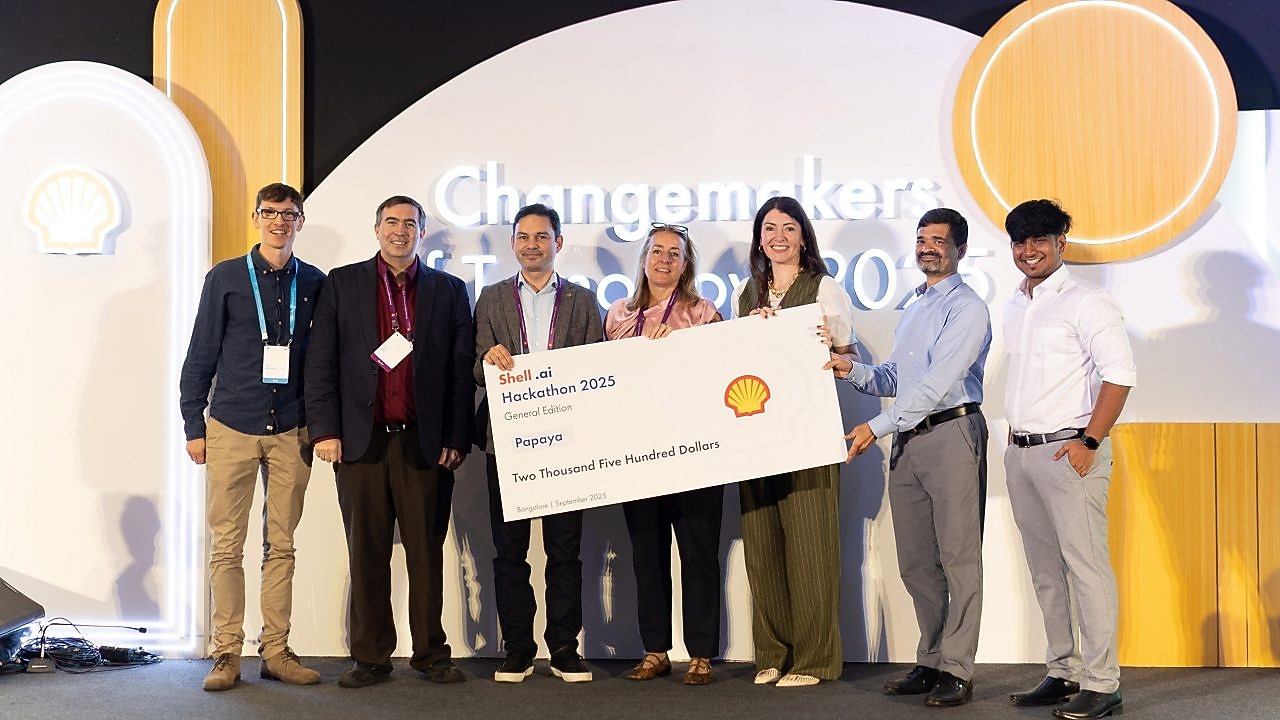
Winner General Edition: Papaya
Team Members: Thibaut Michel Pierre Forest
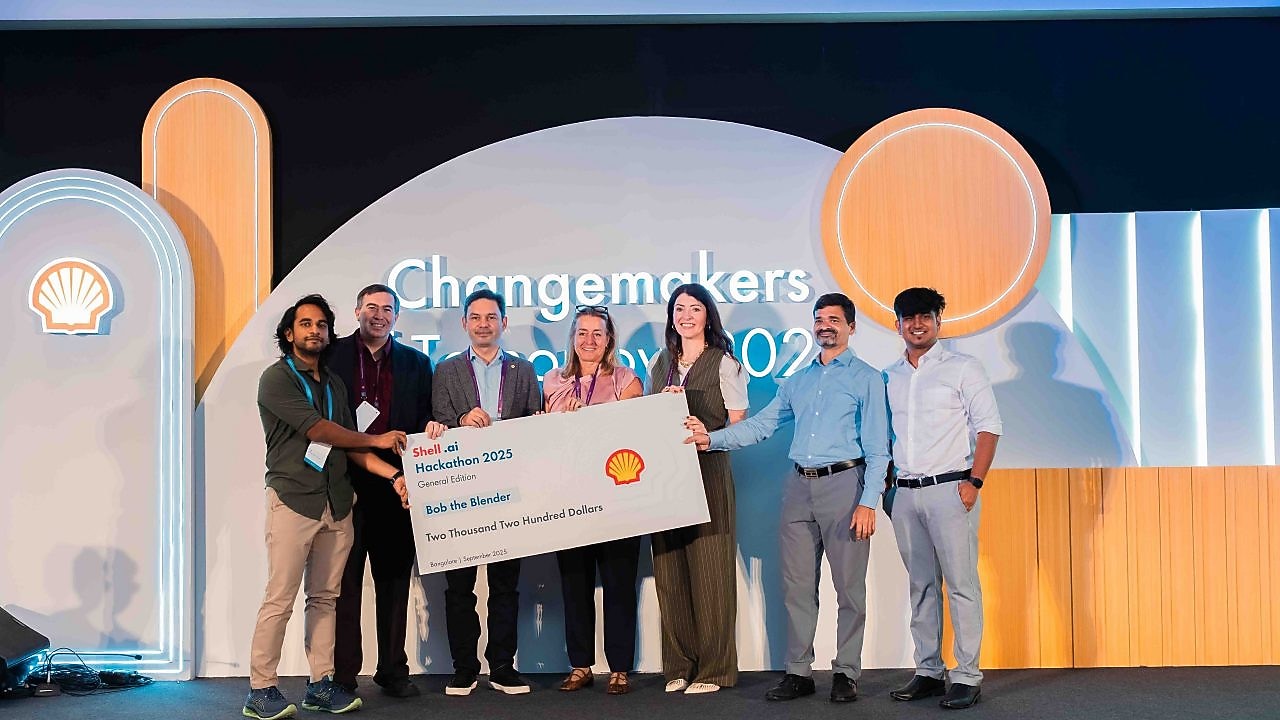
First Runner Up General Edition: Bob the Blender
Team Members: Mayank Singh Chauhan
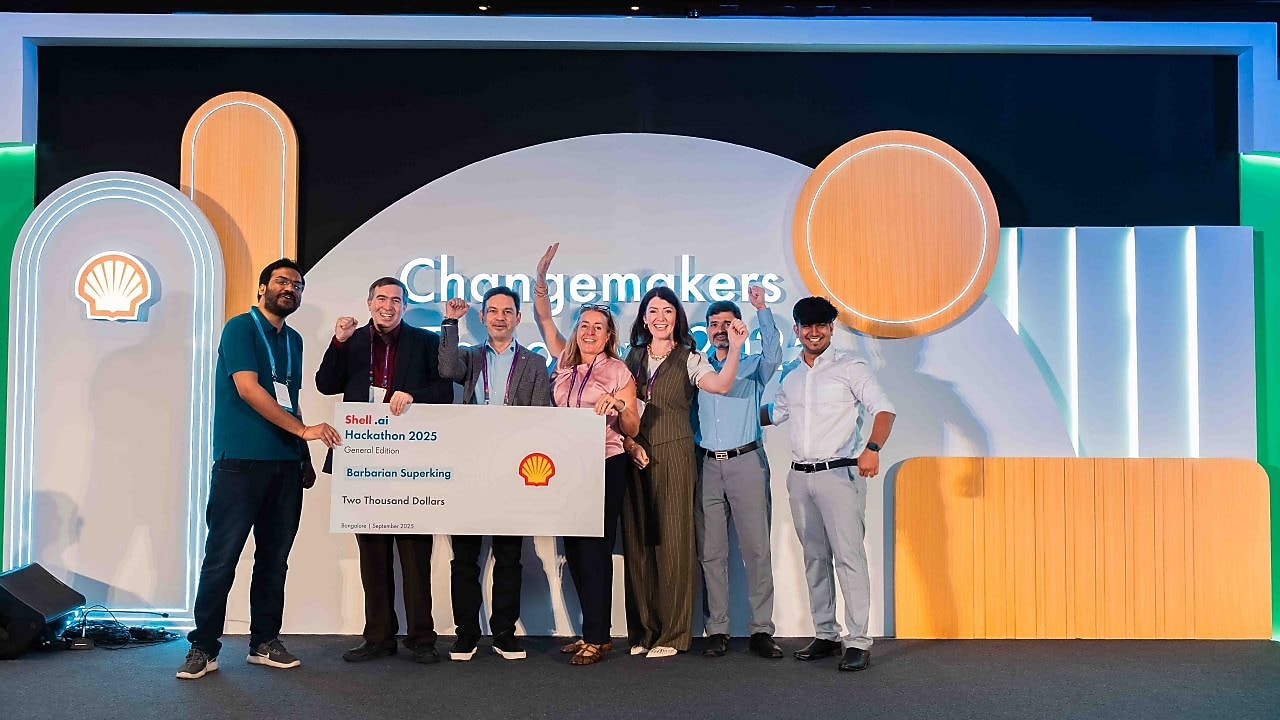
Second Runner Up General Edition: Barbarian Superking
Team Members: Rajshekhar Singhania, Alok Patel
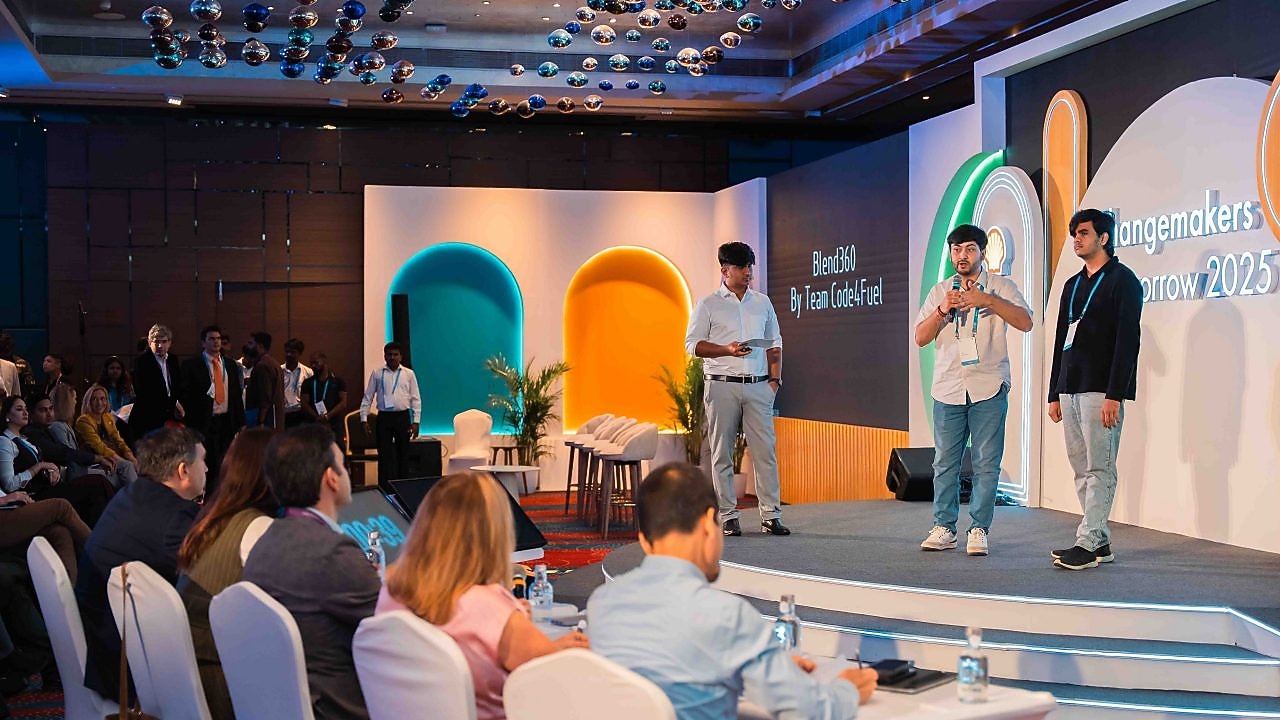
Winner University Edition: Code 4 Fuel
Team Members: Abhinav Raj, Abhay Satish Tiwari
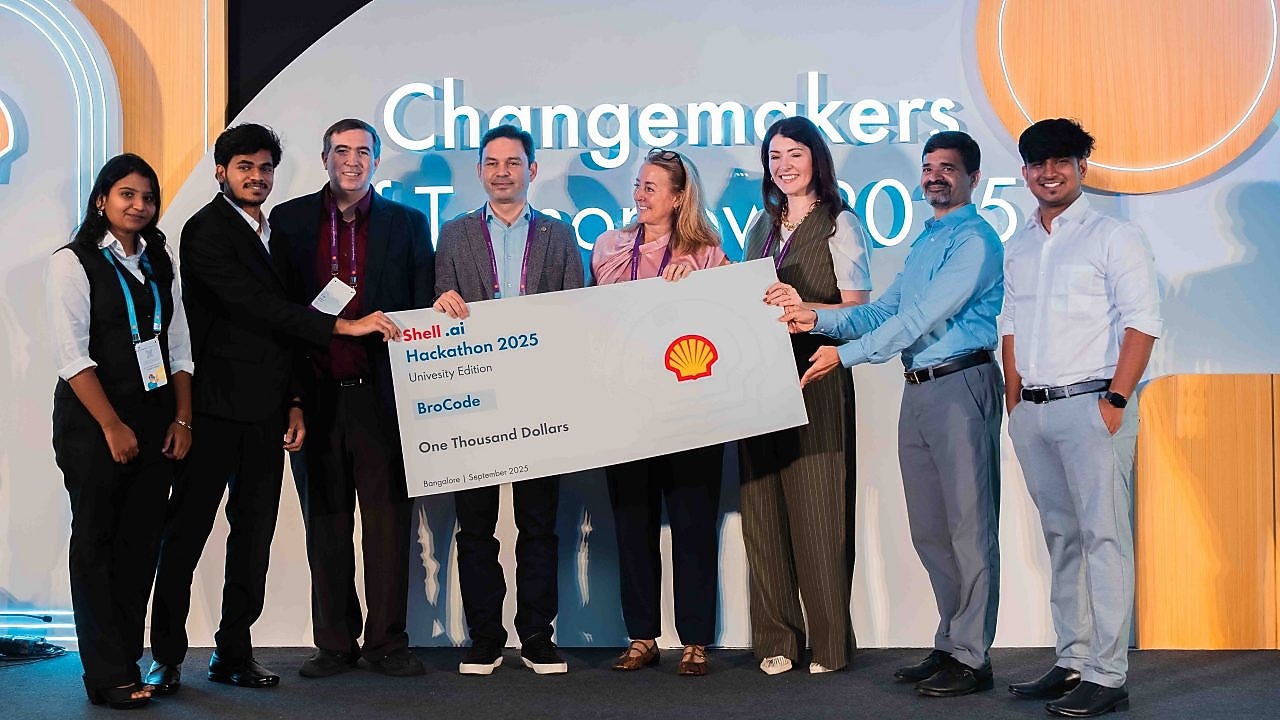
Runner up University Edition: Bro Code
Team Members: Keshamoni Sai Sindoori, Kosuri Akhil
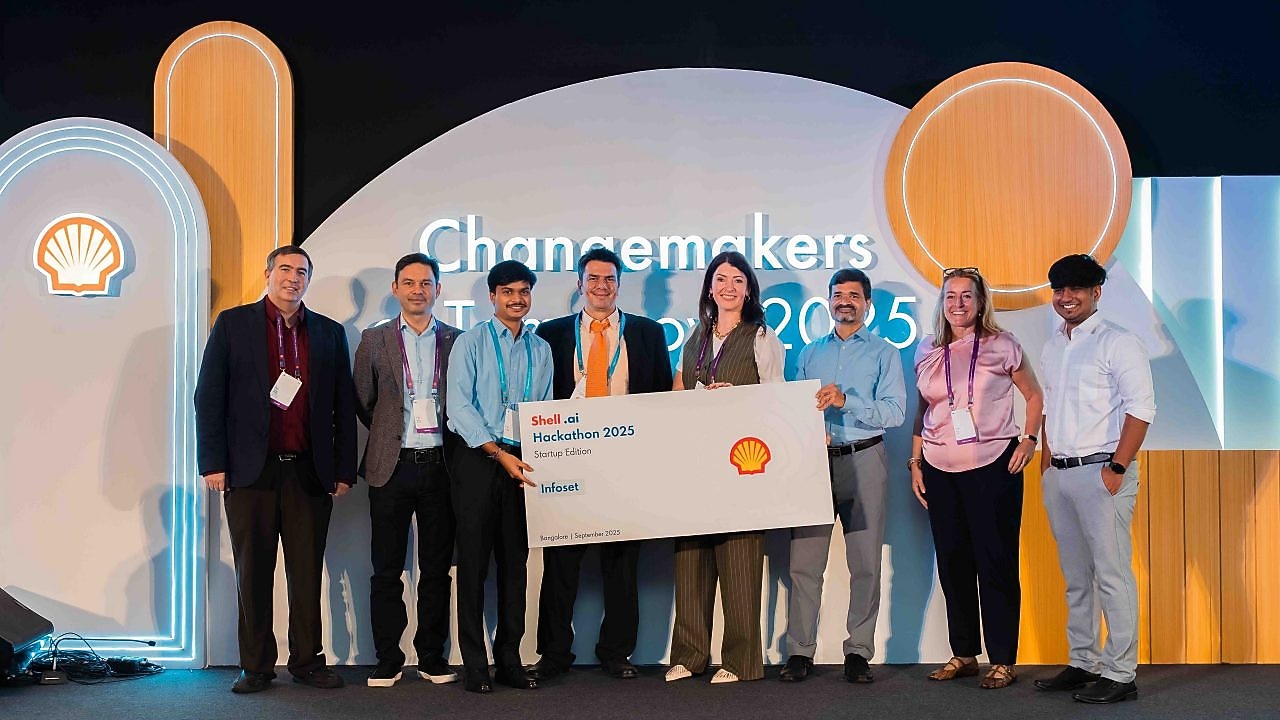
Winner Startup Edition: Infoset
